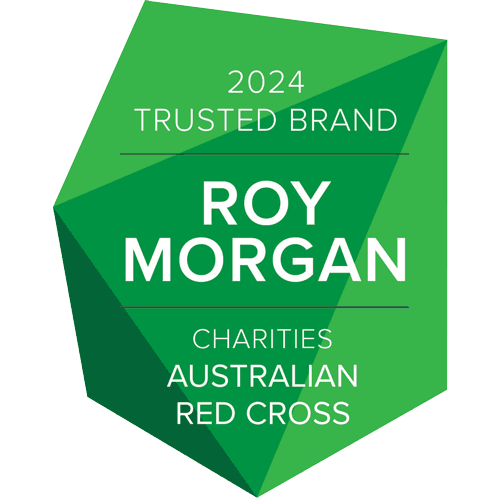Migrants in transition
Hear the stories of migrants and refugees seeking safety and making a new home in Australia, and our teams who support them on their journey.
Reuniting families in the fallout of tragedy
The Restoring Family Links program helps people find family members who are missing due to conflict, disaster or migration.
The Joy of Many Colours Multicultural Festival
Connected Women’s Joy of Many Colours Festival is an annual celebration of the vibrant tapestry of cultures that collectively shape our communities.
Refugee is a circumstance, not an identity
Harnessing the collective strength of our communities to build a brighter, more equitable future for all.
The day my life changed forever
A former journalist who escaped danger in Africa and sought safety in Australia shares her story to help others understand what drives people to seek asylum.
10 things you can do to help this Refugee Week
Play your part in building a more welcoming Australia for refugees.
A mother's journey from Kharkiv to Perth in search of safety
“Thank you, Australia, for giving me hope, a new home, and reminding me no matter where we come from, we can build a better tomorrow together.”
Refugee Week: 10 things you can do to help
Play your part in building a more welcoming Australia for refugees.
Migration support for thousands of people each year
“I am with you on this journey. I hear you. You are not alone.”
How my mum escaped Ukraine and made it to Darwin
My mum, Olena, has spent her whole life in Ukraine. She had her own home, a great job and good friends. But when our country descended into chaos, she had to give it all up to find safety.
World Day Against Trafficking in Persons
On World Day Against Trafficking in Persons (30 July 2022), let’s raise awareness that millions of men, women, and children around the world every day are subject to trafficking and slavery.
National Refugee Week: 10 Things You Can Do
This National Refugee Week (19-25 June 2022), here are ten simple and practical things you can do to be a champion for building an inclusive and welcoming Australia.
With an open heart, and open arms
Assadullah Khurrami from Australian Red Cross shares how open arms and open hearts can help enrich the diversity of Australian communities.
National Refugee Week 2022
We're recognising and celebrating the stories, resilience, and strength of people seeking asylum and refugees and their contributions to our local communities.
The right recipe for a safe and warm welcome for new refugees
After fleeing conflict in Congo, Jojo and Namarke both started a new life in Albury. Now together they run a business that gives back to other refugees.
How forcible separation affects people living in Australia
Sleep, concentration, the ability to work or settle into new lives. Separation from loved ones has profound impacts.
World Day Against Trafficking in Persons
Listening to and learning from survivors of human trafficking.
Riding towards friends and belonging in a new country
A program that provides bikes to recently-arrived refugee families is helping children find friendship, connection and balance in their new homes.
A fresh start in a new home
It’s a phone call Elie and his family waited years for. They waited so long that when it finally came, Elie couldn’t believe it. His mum screamed “Elie, it’s happening!” They were going to a new home – Australia.
Working on the frontline to end human trafficking
Modern slavery happens in Australia. Meet the people behind the scenes dedicated to supporting people who have been trafficked.
30 July 2020
We have supported over 440 people affected by slavery, forced marriage and trafficking over the last ten years.
The power of a helping hand
Food in your stomach, a roof over your head, a doctor when you are sick – these are things everyone deserves.
The power of a helping hand
Food in your stomach, a roof over your head, a doctor when you are sick – these are things everyone deserves.
Kindness goes a long way
Sayed’s hope carried him from Afghanistan to Australia. A little kindness helped him start his life here. Sayed felt the boat shudder to a halt the second night into the journey. Everyone had felt it, and he knew immediately: the sole remaining engine had broken.
Charity donations of $2 or more to Australian Red Cross may be tax deductible in Australia. Site protected by Google Invisible reCAPTCHA. © Australian Red Cross 2025. ABN 50 169 561 394
